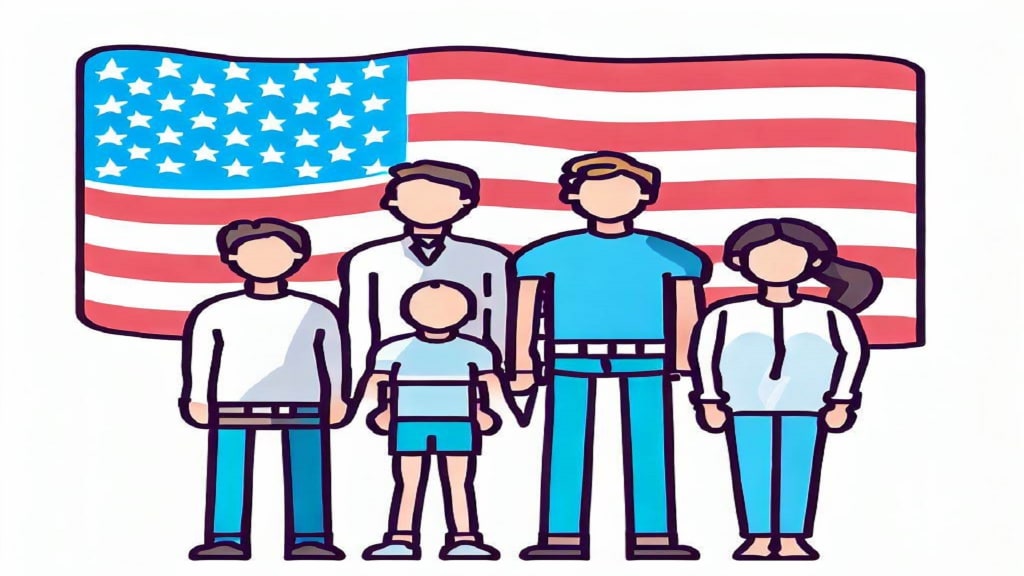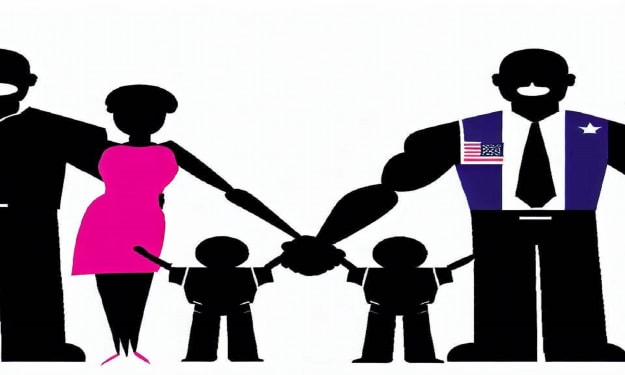Toxic Families Lead to a Toxic Culture in the United States
Family is the foundation of any society shaping individuals and their values from an early age

Family is the foundation of any society shaping individuals and their values from an early age. In the United States, as in many other countries, families play a crucial role in shaping the culture and collective mindset. However, when families become toxic environments, they can give rise to a toxic culture within the broader society. This article explores the impact of toxic families on the culture of the United States, analysing the patterns and consequences that arise from such environments.
The Definition of Toxic Families
Toxic families are characterised by harmful patterns of behaviour and communication. These patterns can include emotional and physical abuse, neglect, manipulation, and excessive control. In such families, there may be a lack of healthy boundaries, leading to enmeshment or isolation of family members. Substance abuse and unresolved conflicts are often prevalent in toxic family environments.
The Effects of Toxic Families on Individuals
Growing up in a toxic family can have profound and lasting effects on individuals. Children raised in such environments may experience low self-esteem, anxiety, depression, and difficulties in forming healthy relationships. They may internalise the toxic behaviours they witness, perpetuating them in their own lives and relationships as they become adults.
The Ripple Effect on Society
When individuals from toxic families become adults, their unresolved emotional issues and negative coping mechanisms can extend beyond their personal lives. The toxic behaviours they learned as children can manifest in various aspects of society, leading to a toxic culture.
1. Toxic Communication
In a culture influenced by toxic families, communication can become aggressive, dismissive, and non-empathetic. People may struggle to engage in open and respectful dialogue, hindering progress and understanding between individuals and communities.
2. Lack of Trust and Social Cohesion
Toxic family dynamics can erode trust within the broader society. When individuals experience betrayal and mistrust within their own families, it becomes challenging to build trust in other relationships and institutions. This lack of trust can weaken social cohesion and lead to a fragmented society.
3. Cycle of Violence and Abuse
Children who witness abuse or violence in their homes are more likely to perpetuate these behaviours in their own lives. This perpetuation can lead to a cycle of violence and abuse that is difficult to break, affecting not only individuals but also entire communities.
4. Emotional Suppression and Mental Health Stigma
Toxic families may discourage emotional expression and stigmatise mental health struggles. In a toxic culture, seeking help for emotional and psychological well-being can be viewed as a weakness, preventing individuals from getting the support they need.
5. Perfectionism and Performance-driven Culture
Toxic families may place unrealistic expectations on their members, fostering a culture of perfectionism and a relentless pursuit of success. This performance-driven culture can lead to burnout, anxiety, and a lack of work-life balance.
Breaking the Cycle and Fostering a Healthy Culture
Breaking the cycle of toxicity requires a collective effort. As a society, recognising and addressing the impact of toxic families is essential. This involves:
1. Education and Awareness
Raising awareness about the signs and consequences of toxic family dynamics can help individuals recognise and address these issues within their own families.
2. Accessible Mental Health Support
Providing accessible and stigma-free mental health support is crucial for individuals who have been affected by toxic families. This support can help break the cycle of negative behaviours and promote emotional healing.
3. Fostering Healthy Parenting
Supporting parents in developing healthy parenting skills and providing resources for struggling families can create a more nurturing environment for children to grow up in.
4. Cultivating Empathy and Compassion
Promoting empathy and compassion within the society can foster a culture of understanding and mutual respect, counteracting toxic communication patterns.
5. Advocating for Policy Changes
Advocating for policy changes that address family dynamics, mental health, and social services can create a more supportive and nurturing environment for families.
Conclusion
Toxic families can have far-reaching effects on the culture of the United States. By recognising the impact of toxic family dynamics and taking collective action, society can work towards breaking the cycle and fostering a healthier, more compassionate culture. Building a society that priorities emotional well-being, healthy relationships, and empathy is essential for the well-being and progress of the nation.
About the Creator
Zeeshan May
I’m a Creative Content Writer,
I Possesses a Natural Flair for Crafting Compelling and Engaging Written Material.
Website : https://tap.bio/@zeeshanmay/
Email: [email protected]
Twitter : @KasheeeKi/






Comments
There are no comments for this story
Be the first to respond and start the conversation.